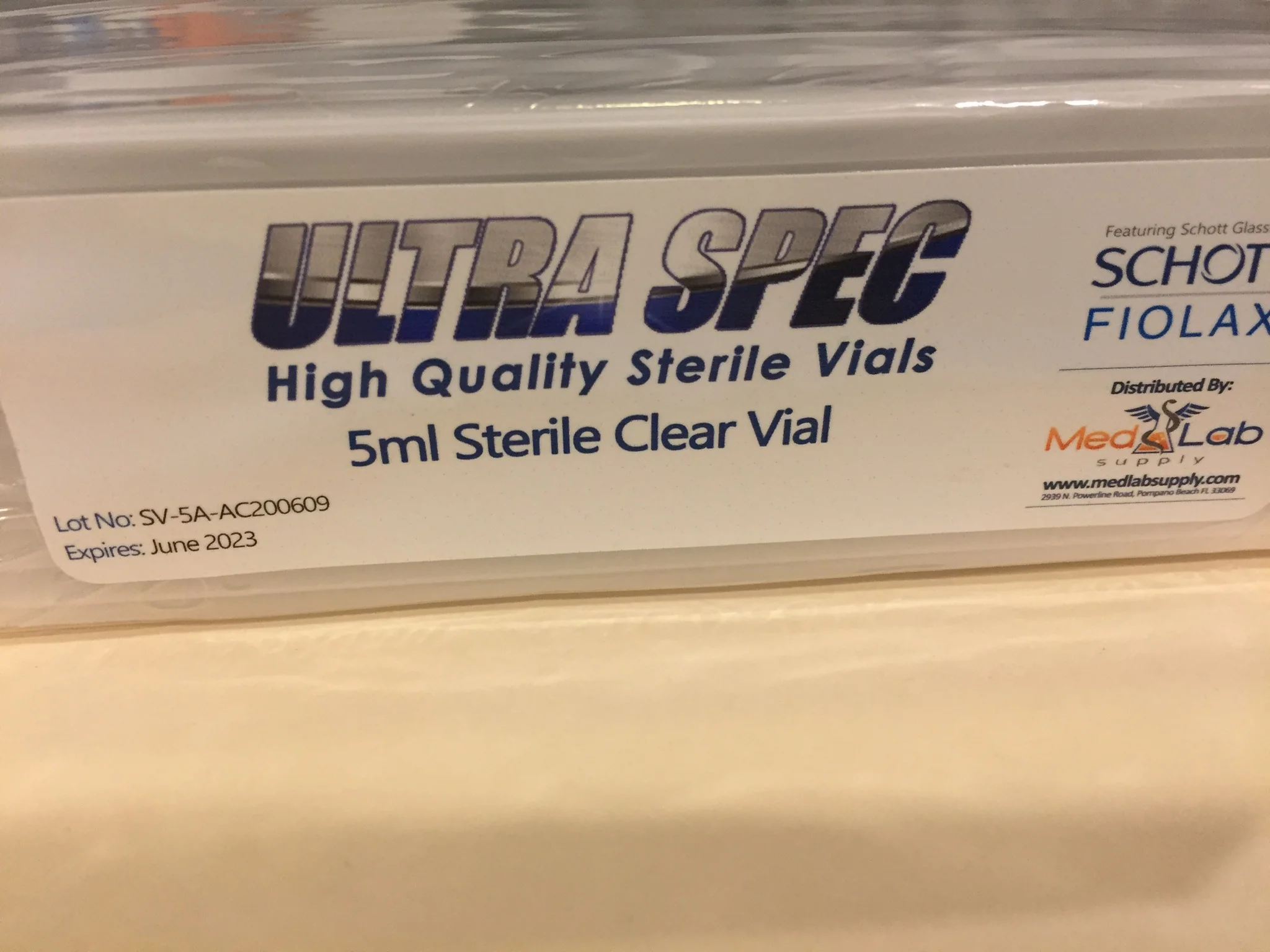Melatonin supplementation has shown a multitude of positive health effects for many health issues including PD and a multitude of other health issues. Unfortunately, melatonin production declines with age, steadily reducing the potential health benefits associated with adequate melatonin levels throughout the body.
Okay, so then if we simply take melatonin in supplement form, shouldn't we be okay? Yes and no. Some people are simply not able to tolerate oral melatonin for various reasons while others, such as myself, can tolerate melatonin at even higher dosing than typically used. So how does someone who does not tolerate melatonin well, increase their melatonin levels? First, it should be noted that when melatonin is produced in the body in sufficient amounts to help maintain health, it does not cause the intolerance that some people experience from melatonin supplements and that is important. Everyone tolerates melatonin produced in the body, so natural production in the body seems like a very good way to achieve sufficient melatonin status.
Three important areas where melatonin is produced in the body is in the pineal gland located in the brain, the gut and the mitochondria. In order of level of production, the pineal gland produces the least, the gut is estimated to produce over 400 times the amount produced in the pineal gland and since all cells in the body, except red blood sells, contain mitochondria, the mitochondria are likely the highest producers of melatonin in the body. Each cell in the body can contain varying amounts of mitochondria which can exceed 2000, but the numbers vary greatly depending on many factors such as the tissue examined, antioxidant status, time of day etc., but this gives you an idea of how much melatonin production we are talking about when it comes to mitochondria. Mitochondria can also draw melatonin into the mitochondria if needed, but if it already has sufficiency, then that melatonin can be used elsewhere.
This clearly gives a clue about the importance of melatonin in mitochondria to almost instantaneously neutralize the Reactive Oxygen Species (ROS) radical that is produced as part of the normal mitochondria function and further elucidates the importance of melatonin to maintain health and life. I will discuss the gut aspect of melatonin later.
In 2019, professor Reiter, a world renowned melatonin researcher for over 40 years with hundreds of studies listed on PubMed in conjunction with Scott Zimmerman did an extensive review of research which showed many interesting things, one of which is that exposure to the near infrared (NIR) light range from the sun helped to improve mitochondria function and also increased mitochondria melatonin production. These are two important things that infrared light therapy is thought to do also. Their review also showed that infrared light, which is not visible to the human eye, can penetrate the skull and can increase pineal melatonin production. It is only a hypothesis on their part, but their ideas are in line with what other researchers have shown in previous studies and similar to the thinking behind man made NIR studies. They have taken some of this individual research and combined it to form a more complete idea of the relation ship of melatonin, NIR, mitochondria and human health.
melatonin-research.net/inde...
I would just like to take a moment to recommend reading their full study because it covers a lot of ground and has useful information in it. It is long, but worthwhile reading. One interesting message was that NIR from the sun may penetrate significantly deeper into the brain via the cerebral spinal fluid around the brain interacting with gray matter than is currently thought possible.
In the following study, it is shown that the use of whole body NIR in the form of red light therapy not only increased athlete melatonin serum levels, sleep and sleep quality, but it also improved endurance. So red light therapy is a third option to increase melatonin levels, but NIR from the sun is free and stronger than some red light treatment options which can get quite expensive.
ncbi.nlm.nih.gov/labs/pmc/a...
Here is a useful quote from the study above :
>>> ' We have demonstrated that red-light illumination positively affected sleep quality and endurance performance variables in Chinese female basketball players. Based on previous studies,6,12,14,15,33 we can infer that red-light treatment contributes to increased melatonin secretion in the pineal gland and muscle regeneration. ' <<<
So one of two options to increase melatonin levels without the side effects associated with melatonin such as next day drowsiness, vivid dreams or nightmares is to get sun exposure. Artificial NIR red light therapy can also increase melatonin levels, but this option comes at significant cost whereas sun exposure is free! Another consideration is that in the study above, they used whole body NIR exposure. There are many red light therapy devices, and most that cost under $1000 are not going to be whole body applications, but rather partial body applications such as a knee or lower back and potentially weak devices compared to NIR from the sun. When you get into professional grade whole body units, you are generally going to be spending thousands of dollars. The sun is free and gives whole body coverage at no extra charge!
The second way to increase melatonin is natural also. This way involves increasing short chain fatty acids (SCFAs). Keep in mind that melatonin production in humans declines with age. Similarly, SCFAs decline with age and have shown in studies to not only increase melatonin levels in the gut, but also melatonin receptors. SCFAs in combination with melatonin and melatonin receptors improve mucosal gut barrier function as well as improve tight junctions as well as epithelial function all contributing to improved gut barrier function and reduced gut permeability as well as reduced gut inflammation and oxidative stress throughout the body. It is worth noting that in cases of many diseases such as PD, the normal age related decline of SCFAs, melatonin and melatonin receptors are further increased, so increasing production of these is a very important step in improving the disease state, but also health in general.
On that note here is a partial list of items that have shown the ability to increase SCFAs or improve the gut microbiome in such a way as to help produce more SCFAs.
1. Vitamin D - also improves gut barrier function
2. Vitamin C - may have synergy with vitamin B2 and also decreases certain pathogenic bacteria
3. Vitamin B2 (Riboflavin) also improves gut microbiome balance
4. Fish Oil - also noted for its potent anti inflammatory effects
5. N Acetyl Cysteine (NAC) - very well noted as a potent antioxidant and mucolytic
6. Exercise - already established as one of the more healthful things that people can do for improved health and physical function
7. Algal Oil / Algae Oil - similar effects to fish oil via DHA and EPA omega 3's
8. Berberine - anti inflammatory anti oxidative stress, anti diabetic and also noted for improving cognitive function
9. Fasting - in different forms such as intermittent fasting or Ramadan fasting
10. Pistachios - also supplies needed fiber to feed SCFA producing bacteria
11. Probiotics / Synbiotics - also alter the gut microbiome in healthful ways
12 Prebiotics - especially useful for feeding SCFA producing bacteria.
13 Fermented Foods and Beverages
14. Oat Beta Glucan
15. Orange Juice - also offers anti diabetes benefits
16. Fiber in multiple forms including fermentable fiber through multiple forms of fruits and vegetables
17. Mannitol - is also noted by some people as helpful in improving quality of life in PD
18. Xylitol - has also shown usefulness as a low glycemic index sugar substitute
19. Black Tea - but not green tea can increase SCFAs
So as you can see, there are many ways to increase SCFAs as a means to increase melatonin production and melatonin receptors in the gut, improve gut barrier function, reduce leaky gut/gut permeability, reduce oxidative stress and inflammation.
Here you have two simple and effective ways to increase melatonin in the pineal gland, gut and mitochondria to take advantage of melatonin's many positive health effects without the side effects associated with melatonin supplementing. Melatonin naturally produced in the body does not have side effects, only positive health effects. This makes melatonin a viable health improving option for EVERYONE, not just those who can tolerate oral melatonin supplements!
I hope that this article shows how much the body uses melatonin for a multitude of functions in all areas of the body and exactly how mandatory melatonin is for maintaining health and life. This article goes hand in hand with all that I have written about the health benefits of melatonin in people and hopefully it further conveys exactly how needed melatonin is for sustaining our health.
This should be helpful for people who live in areas of the world where melatonin is only available by prescription in very small dosages.
Our bodies have evolved under the sun from the beginning of time and have adapted to make the most of what the sun has to offer and over 50% of what the sun brings to Earth is infrared light. That seems like a very important fact to me.
In this initial post I only mention two of the seven ways to increase melatonin without supplementing. To see the other five ways, you will have to scroll down into the thread and look at my replies...

healthunlocked.com

 www.excelmale.com
www.excelmale.com















